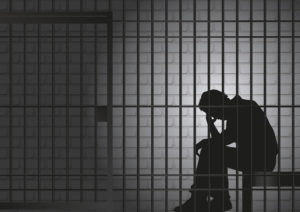Police cannot fix a broken mental health system
 Police officers are increasingly being used as the service of default in responding to people with mental health problems, a report by Her Majesty’s Inspectorate of Constabulary and Fire & Rescue Services has confirmed.
Police officers are increasingly being used as the service of default in responding to people with mental health problems, a report by Her Majesty’s Inspectorate of Constabulary and Fire & Rescue Services has confirmed.
The report, ‘Policing and Mental Health: Picking Up the Pieces’, makes it clear that whilst the police service is doing a good job in difficult circumstances, there are concerns over whether the police should be involved in responding to mental health problems at the current level. The report emphasises that there needs to be a radical rethink and a longer-term solution to what has become a national crisis.
HM Inspector of Constabulary Zoë Billingham said:
“Police officers naturally want to respond and do their best to support vulnerable people when they ask for help. And we found that police officers respond to those with mental health problems with care and compassion.
“But we cannot expect the police to pick up the pieces of a broken mental health system. Over-stretched and all-too-often overwhelmed police officers can’t always respond appropriately, and people in mental health crisis don’t always get the help they need.
“People in crisis with mental health problems need expert support – support that can’t be carried out in the back of a police car or by locking them into a police cell.
“All too often, the system is failing people when they most need help. This is not a problem that the police alone can solve. Other services need to stop relying on the 24/7 availability of the police.
“We have grave concerns about whether the police should be involved in responding to mental health problems to the degree they are. Fundamental change is needed urgently in the way those with mental health problems are supported by the state. The police should be the last resort, not the first port of call.”
HMICFRS commissioned a survey to understand better the public’s view of the role of the police service in helping people with mental health problems. The findings included:
- just two percent of people surveyed felt it was the police’s responsibility to respond to mental health calls.
- seventy percent of people felt it was the main responsibility of the health services to deal with people with mental health problems; and
- a further 10 percent felt that the local authority or council were responsible.
However, the report reflects that demand for police to respond to mental health-related calls is increasing. Forces tended to underestimate the number of officers sent to mental health incidents, the response to which took longer than forces realised. Some forces are more advanced at understanding and measuring demand in this area than others, but overall the police service needs to improve its understanding of the extent of mental health demand.
The scale of the problem is illustrated by findings that, in London, for example, the police receive a call about a mental health concern once every four minutes and send an officer to respond to a mental health call every twelve minutes. The top five individual repeat callers to the Metropolitan Police Service all have mental health problems and called the force a combined total of 8,655 times last year, costing the service £70,000 just to answer the calls. Welsh forces have estimated that each call takes, on average, three hours.
The report found strong leadership and governance on mental health across most forces. Also, there are strong and well-established partnerships across the country to support the most vulnerable in society, the most widespread of which is a mental health triage system to manage mental health demand and respond better to people in crisis. Additionally, police officers had a good understanding of how to respond to those with mental health problems and feedback from partner organisations recognised the empathy officers showed in supporting those with mental health problems.
In a focus group, one person with a history of mental health problems said:
“I have had a lot of support from police. My baby died in foster care. I went off the rails. The police saw me sitting on the pavement crying hysterically. The officer asked me what was wrong and put his coat around me. He put me in the back of the car and said ‘I am taking you to hospital to get some support.’ He stayed with me and took me home and when I went into the treatment centre, the police officer sent me a card that said; ‘do well, this is your beginning.”
This illustrates the feedback indicating that in some cases, the police service is stepping in to fill shortfalls in the health service. This includes:
- transporting someone to hospital because an ambulance isn’t available;
- waiting with someone in hospital until a secure mental health place is found; and
- checking on someone where there is concern for their safety.
The report identifies improvements that police forces can make in improving training and building a clearer view of demand. But the report concludes that the longer-term solution must involve all public services if it is to provide people with mental health problems with the expert support they deserve.
